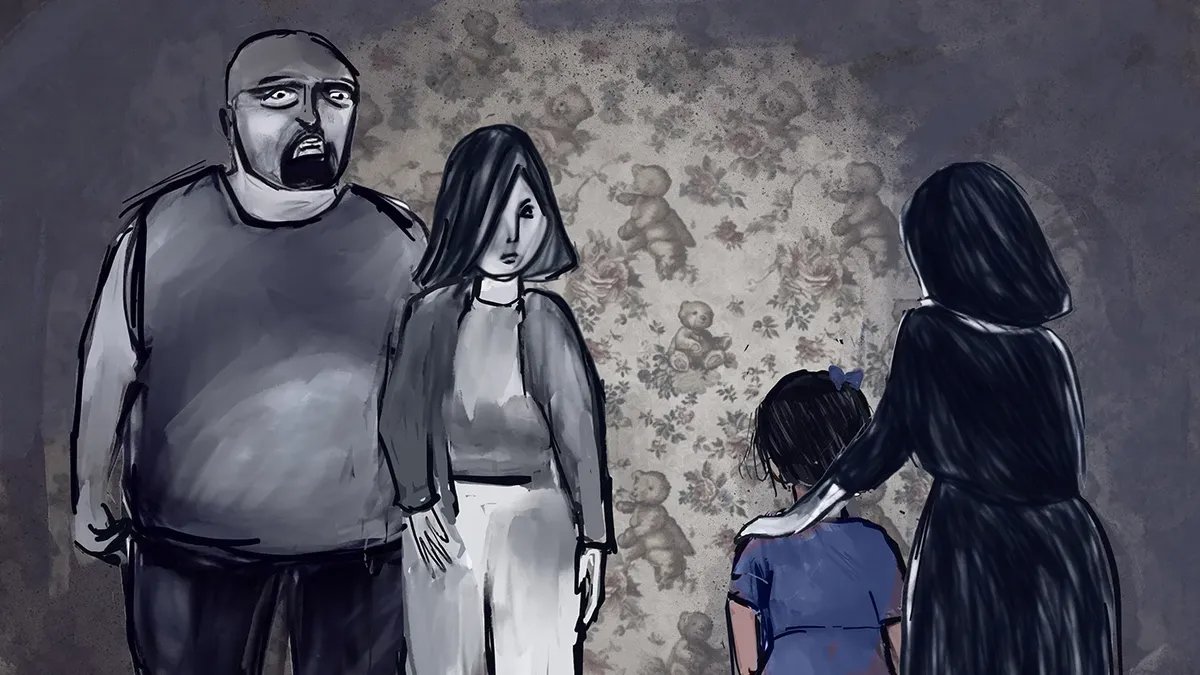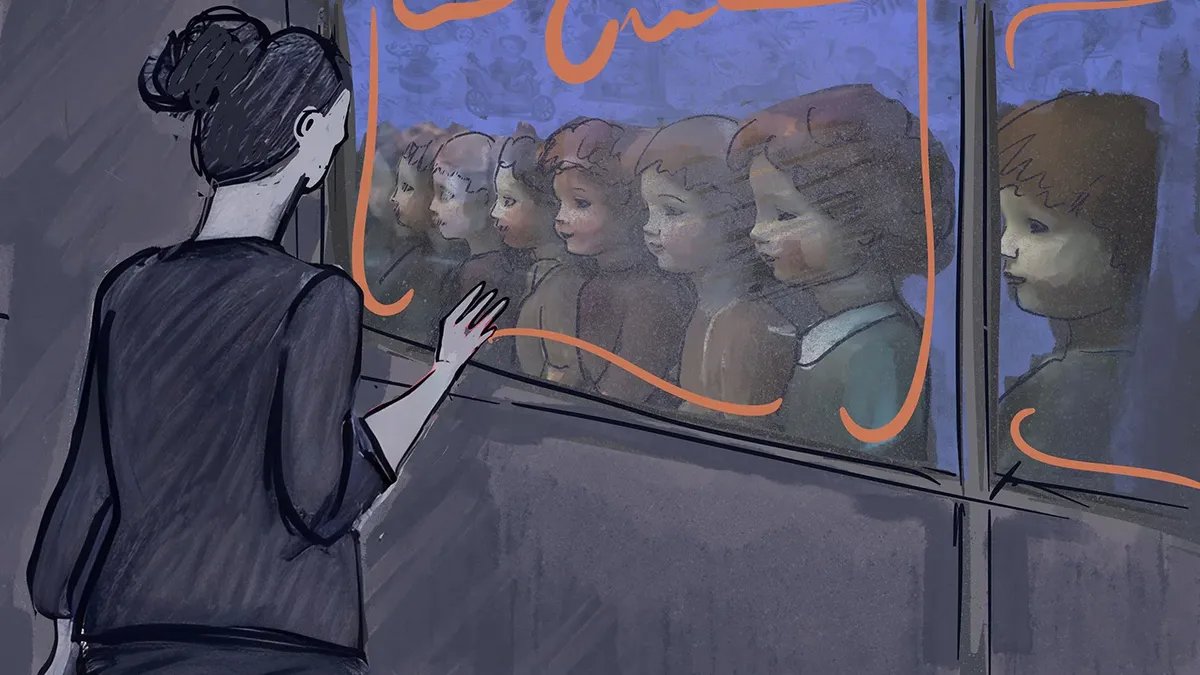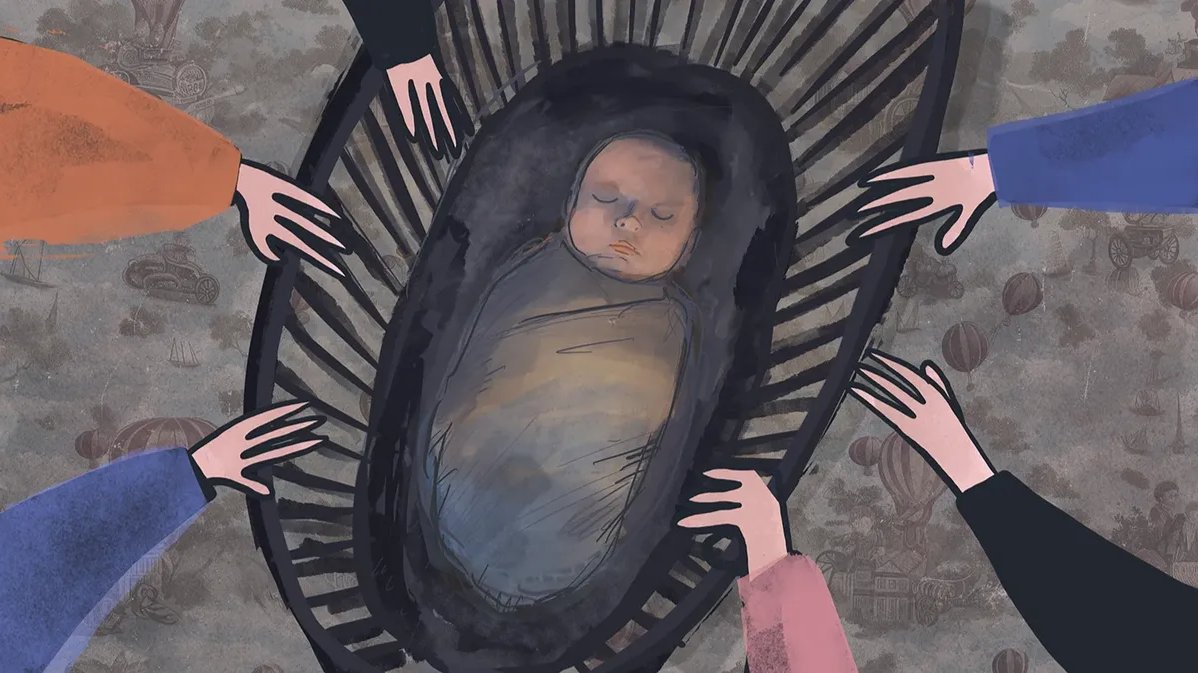While the Russian government proudly touts the high adoption rate of children from eastern Ukraine, apparently unfazed by the fact that such practices amount to war crimes, parents wanting to adopt a child in Russia face roadblocks at every turn. Novaya Gazeta Europe shares the stories of three Russian children who were adopted.
‘We had to remove Varvara from her home urgently’
A few years ago, Maria adopted her own niece Varvara. According to Maria, shortly after Varvara was born her mother went “off the rails”, got into debt and abandoned her daughter. For several years, Varvara lived in her aunt Maria’s house.
“Varvara went to stay at her mother’s to get all the documents she would need to register at school. But about a month later, we had to remove Varvara from her home urgently because she was being sexually abused by her mother and her mother’s partner,” Maria said.
After this incident, Maria realised that Varvara had to be taken away from her mother permanently. At first, Maria planned to continue looking after Varvara as a voluntary guardian with the consent of Varvara’s biological parents, but social workers didn’t recommend it.
“For three weeks I spoke discreetly with social workers, trying to figure out what was best.” They warned Maria that if she didn’t report the incident to the police and make a statement, Varvara would remain at risk of sexual abuse.
Maria initially went to the police with the intention of accusing her sister’s partner of the abuse and tried to evade questions that would incriminate her sister. However, after talking to Varvara, law enforcement officers turned their attention to her mother.
Varvara’s mother was eventually sentenced to 12.5 years in a penal colony. Her partner was sentenced to 15 years.
Maria then began the formal adoption process with social services who were already preparing to strip the mother of her parental rights.
“The adoption process took a long time,” Maria said. “At first we had to attend a course for adoptive parents and fill in all the paperwork while the court stripped Varvara’s mother of her parental rights. Varvara lived with us during that period, but it took about two years to complete the whole adoption process.”
Varvara and Maria’s story is highly unusual in Russia. Children who have been abused by their parents often end up in orphanages, but are ineligible for adoption due to having living parents. To be adopted, a child’s birth parents must have been deprived of their parental rights.
Sometimes children end up in orphanages simply because their parents fall upon tough times. In such cases, one of the parents will typically register to maintain their parental rights so that the child cannot be adopted. About 39% of all children in orphanages find themselves in this “temporary” position, according to open data platform To Be Precise.

Illustration: Alisa Krasnikova for Novaya Gazeta Europe
‘I cried every time I drove past the orphanage’
Ksenia adopted Vitya when he was three years old. He had some developmental difficulties, which is fairly common for children in Russian orphanages. More than half of all children in Russian orphanages had chronic illnesses or disabilities in 2022.
Many people who want to adopt are not up for adopting children with disabilities. “Our families do not want to take in disabled children, and if they do, they are isolated cases. Half of institutionalised children with disabilities will never be taken into foster care,” Nikolay Slabzhanin, director of the Children’s Villages SOS charity, said in an interview with Izvestia.
“It is very difficult to find a child who fits most, nevermind all, of the adoptive parents’ requirements,” Ksenia said. In her case, she had to go to several orphanages.
After passing medical examinations and collecting all the necessary documents, Ksenia went to the nearest children’s home. But she did not find a child who matched her requirements, so she turned to the federal database of orphaned children.
“In the database children’s photos appear like puppies in a shop window. Often their photos are out of date, and the children look completely different,”
Ksenia said.
Ksenia then narrowed her search to regional databases.
“If the social worker is nice and you give her a box of chocolates or cry to her, you might get lucky,” Ksenia said. “At least that’s what helped me. I was just crying because there was no hope for me. A few days later, she called me before sending the children from the regional database to the larger federal database and that’s how I managed to apply to meet a child.”
Ksenia went through this process three times. After receiving permission to meet a child, if the potential parent chooses not to adopt, they must write a letter of refusal. An independent doctor may offer advice about the child’s health conditions.
Though she was ready to adopt, Ksenia was not prepared for a child with serious health conditions as she was already a single parent. The first time Ksenia visited an orphanage to meet a child, a neurologist advised her that the child would probably never be able to walk and recommended that she carefully consider her own physical strength. Ksenia decided not to adopt.
“The orphanage staff are not always pleasant,” Ksenia said.
“Once, after meeting a child, the orphanage doctor called me and warned me that I would be ruining my own life and that the child I wanted to adopt would rape my biological daughter.”
Ksenia found the right child for her on her third attempt. Altogether the adoption process took her five years. She admits the process could have been much simpler, depending on adoptive parents’ life circumstances, desires, and determination.
Getting to know the children she chose not to adopt left a lasting impression on Ksenia.
“After I turned down a child, it was as if I had abandoned my own biological child. It was such a tragedy. I used to cry every time I drove past a certain orphanage. Now I don’t cry. But I still remember this one child’s eyes.”

Illustration: Alisa Krasnikova for Novaya Gazeta Europe
‘I closed my eyes and pointed at the screen’
Olga has eight biological children. A few months ago she adopted a boy who had been living under her custody for six years. For a long time she postponed the adoption process because of the hassle of paperwork. Custody gives both the child and the caregiving adult slightly fewer rights, but unlike adoption does not require parents to give up parental rights.
One of Olga’s daughters has used a wheelchair since childhood and attends physiotherapy sessions in which she became friends with another girl with disabilities who lived in an orphanage.
“Volunteers took her to sessions, and that’s where I started to learn about adoption,” Olga recalls. She originally enquired about adopting her daughter’s friend, but she was adopted by another family shortly afterwards.
Olga used a local database, hoping to find a child who was physically, but not mentally, disabled. There were no children that met her requirements so she turned to a friend who was a foster parent for advice. She recommended filling in several questionnaires from various adoption agencies.
“I’m used to giving birth, and not really used to having a choice.”
“So I closed my eyes and pointed at the screen. I ended up pointing at a boy who was on the other side of the country. I flew to pick him up and they put me into his care without any fuss.”
Living in a small rural village, it was not easy for Olga to collect the required documents for adoption. It was particularly difficult for her to arrange medical certificates as all the necessary doctors did not live locally.
Anyone who plans to adopt must attend the School for Foster Parents. Accessing this course is not always easy and the waiting list can be up to several months.
“My husband and I were sceptical about this school at first,” Maria says. “We have three children of our own so we thought we knew everything there was to know. But it turned out that the classes were very useful and we learnt a lot. We even learnt how to better communicate with our oldest daughter.”
But the quality of the classes vary from region to region. Olga said that in her case, she didn’t learn anything new.
“The whole course lasted just three days. They told me that smoking was bad and recommended some books, which I had already read,” Olga recalled.
*All names in the story have been changed for safety reasons.
Join us in rebuilding Novaya Gazeta Europe
The Russian government has banned independent media. We were forced to leave our country in order to keep doing our job, telling our readers about what is going on Russia, Ukraine and Europe.
We will continue fighting against warfare and dictatorship. We believe that freedom of speech is the most efficient antidote against tyranny. Support us financially to help us fight for peace and freedom.
By clicking the Support button, you agree to the processing of your personal data.
To cancel a regular donation, please write to [email protected]

